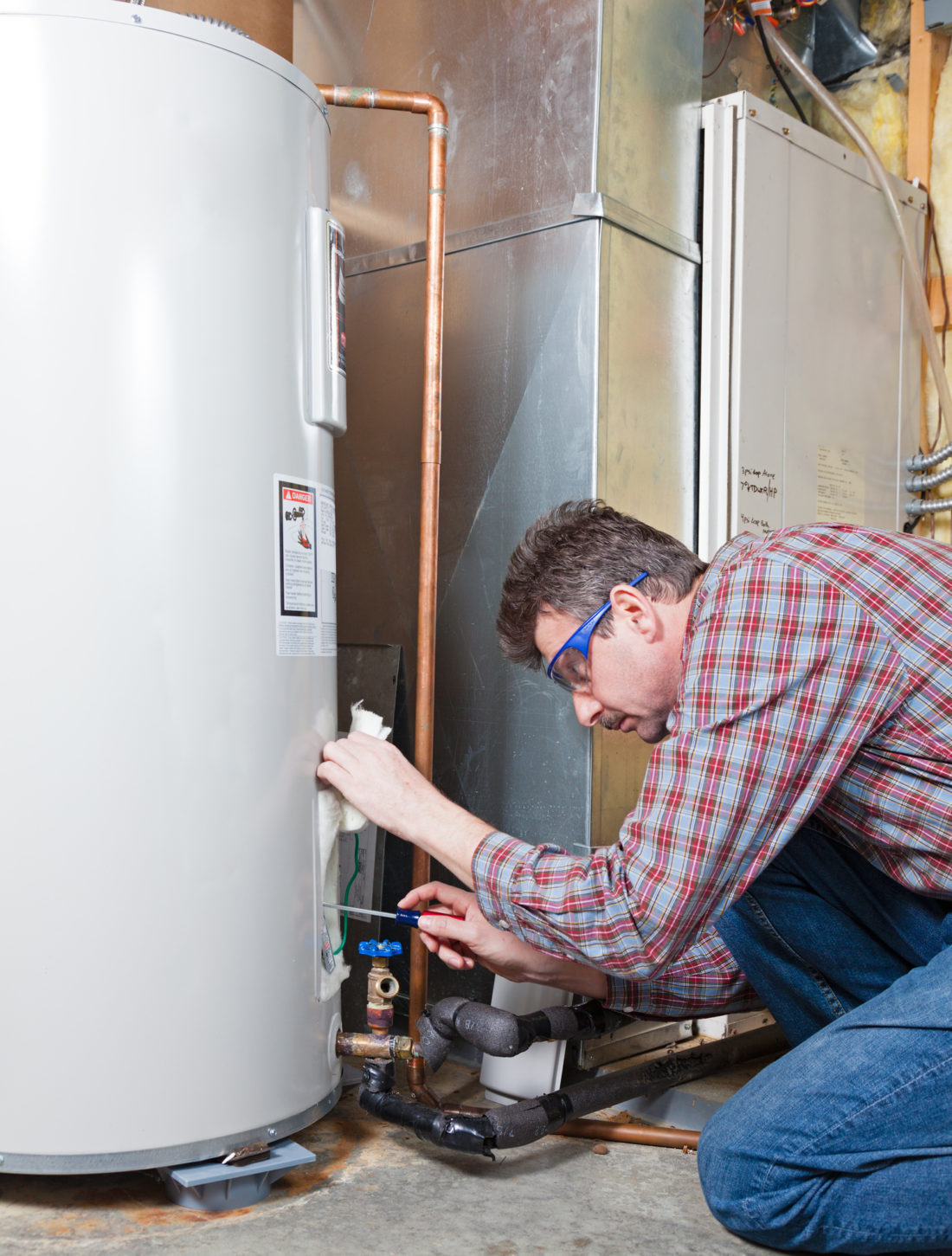 You rely on your hot water heater to provide your house with a steady supply of piping-hot water every day. While they’re incredibly durable, the average water heater will only work properly for about 13 years.
You rely on your hot water heater to provide your house with a steady supply of piping-hot water every day. While they’re incredibly durable, the average water heater will only work properly for about 13 years.
Once it gets close to that age, it’s normal for the unit to start showing signs of wear and tear. The best way to deal with those issues is to replace your water heater as soon as it starts to develop problems.
However, identifying when it’s time to replace it can be tough. Here are a few warning signs of water heater failure you need to watch for.
Table of Contents
- 1 1. It’s Making Weird Noises
- 2 2. The Water Won’t Get Hot
- 3 3. You’ve Got Brown Water in the Taps
- 4 4. There Are Puddles Beneath the Water Heater
- 5 5. You’ve Neglected Regular Maintenance for Years
- 6 6. You’re Scheduling Repairs Frequently
- 7 7. The Water Smells Strange
- 8 Don’t Ignore These Signs of Water Heater Failure
1. It’s Making Weird Noises
Most water heaters make noise when they turn on. It’s part of how they heat the water. However, those noises are typically consistent.
You know what they’re supposed to sound like, how long they’re supposed to last, and can easily tell when something just sounds wrong.
If you start hearing noises that aren’t normal or notice the water heater making loud banging noises, it may be time to replace it. Those noises are surefire signs that components inside the water heater have gotten damaged over the years.
While it may be possible to repair your water heater and get rid of the noises, it may be better to replace it. Replacing the water heater means you won’t have to deal with those damaged components breaking entirely when you least expect it.
2. The Water Won’t Get Hot
Nothing is worse than stepping into a shower and finding that there’s no hot water coming out of the showerhead. If the water doesn’t seem to be heating up or isn’t getting hot enough, it may be time to replace your unit.
As water heaters age, they can get filled with sediment. When this happens, the heating elements won’t work as effectively.
Ultimately, you’ll get left with cold water coming out of the taps even when the water heater sounds like it’s turning on.
If you’ve tried to repair your water heater in the past and it continues to struggle to produce hot water, it’s time to consider a replacement.
3. You’ve Got Brown Water in the Taps
The same sediment that can make it hard for the heating elements to work properly an also enter your water supply. When it does, you’ll notice brown water coming out of the faucet anytime you try to run the hot tap.
The brown color is actually small bits of rust. If you see it, it means that the interior of your water heater is starting to break down. Unfortunately, there’s no simple way to repair the damage.
Your best bet is to replace the unit and install a new water heater. Once you do, you should start to see clean, clear water coming out of both the cold and hot taps every time you turn them on.
4. There Are Puddles Beneath the Water Heater
Unless you have a tankless hot water heater, your unit will store water inside a storage tank. It keeps that water warm at all times which allows you to use hot water on-demand anytime you turn on the tap.
If you notice leaks and puddles around the base of your water heater, it’s time to call a professional immediately. Those leaks mean the storage tank is no longer able to hold hot water.
The longer the leaks continue, the more at-risk you are for serious water damage in your home. Patching the water heater may help you get a few more months out of the unit, but it’s best to replace it entirely.
5. You’ve Neglected Regular Maintenance for Years
Water heaters are durable, but they get several times a day, every day. This means they experience a lot of wear and tear.
Regular maintenance is a must if you want to prevent common water heater failure signs and symptoms. If you haven’t scheduled annual inspections since you moved into the house or you’ve neglected routine maintenance tasks, it may be time to replace your unit.
Unfortunately, poor maintenance can lead to serious problems inside your water heater. The longer the lack of maintenance goes on, the more likely the unit is to fail altogether when you least expect it.
Once you schedule an installation appointment, ask about creating a maintenance plan for your new unit so you can avoid premature system failures.
6. You’re Scheduling Repairs Frequently
When a water heater is in good condition, it should work without issue. If you find that your unit keeps having issues or you’re scheduling frequent repair appointments, it’s likely that your unit is starting to fail.
Think about how often you’re calling your plumber. If you’re making appointments once a month or even once every quarter, you should consider upgrading to a new unit.
You’ll end up saving money in the long run and won’t have to deal with the inconvenience of frequent repairs.
7. The Water Smells Strange
When a water heater is in good condition, the water that comes out of your tap should be odorless. However, as the unit starts to break down, small amounts of metal and rust can enter your hot water supply.
This will cause the water to smell strange whenever the hot tap turns on.
Think about the way the air smells when you’re in the shower. If you smell something off-putting or notice a distinct metallic tang in the air, it’s one of the early warning signs of a bad water heater.
Replacing the unit will get rid of those unpleasant odors once and for all.
Don’t Ignore These Signs of Water Heater Failure
If you’ve noticed any of these signs of water heater failure, don’t wait to schedule an appointment with your plumber. Leaving a damaged and failing water heater in place increases your risk for water damage and keeps you from having reliable access to the hot water you need.
The sooner you can get it replaced, the better off your home will be in the long-run.
Staying on top of water heater repairs is one of the best ways to keep your home in good condition, but it’s not the only thing you need to do. Check out our latest posts for more home maintenance tips and tricks.







